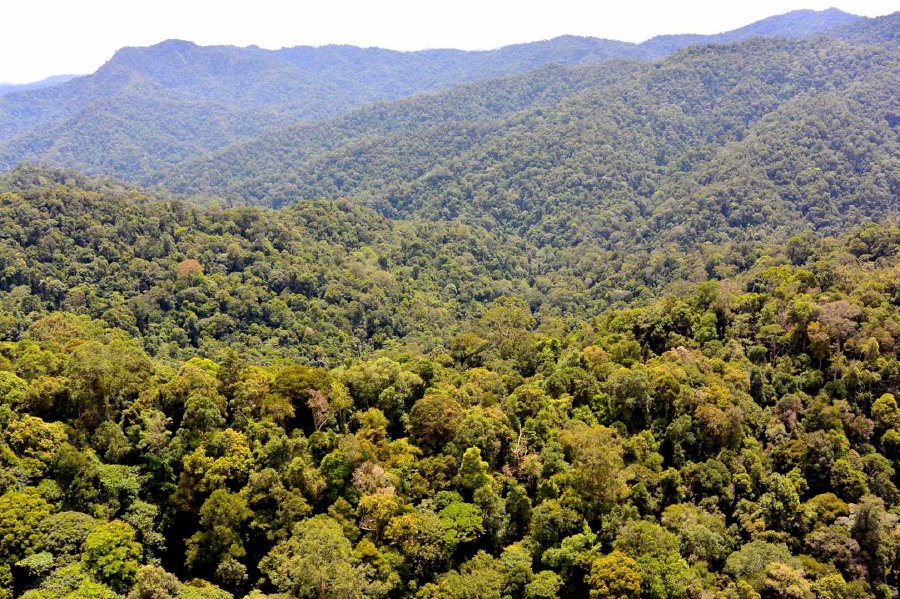By Olivia Miwil - February 9, 2022 @ 9:22pm
KOTA KINABALU: Sabah should address technical issues of the Nature Conservation Agreement (NCA) to ensure the state can market its carbon at the premium markets, several non-governmental organisations said today.
"The Voluntary Offset Carbon market is based upon principles of transparency, sound governance and additionality.
"Given the urgency of climate change, and possibility of "carbon cowboy" scandals, these standards are getting stricter," said the 11 NGOs in a joint statement.
The 11 are Borneo Futures, Danau Girang Field Centre, Ezplast Solution, Land Empowerment Animals People (LEAP), Sabah Environment Trust, Sabah Human Rights Centre, Sabah Reform Initiative, South East Asia Rainforest Research Partnership (SEARRP), Society for Equality, Respect And Trust for All (SERATA), WWF-Malaysia, as well as Zero Waste Sabah.
Without fulfilling the strict requirements, they warned the carbon trade deal would become null and void, as well as less profitable.
The group also cautioned that credible international buyers, in undertaking their own due diligence, would be alarmed by the lack of transparency with regard to the identity and competency of the owners of one of the parties to the NCA.
They also expressed their concern over the credibility of Hoch Standard allegedly having no track record in carbon trading and the shell company had signed the agreement with the state government.
"The secrecy shrouding the deal, including the lack of clear commitments to adhering to Free Prior and Informed Consent (FPIC) standards with any and all impacted Native Customary Rights holders, would raise further concerns.
"Therefore, a logical precondition for moving forward with stakeholder engagement is the disclosure of documents that reveal the identity of the real party to the NCA along with their financial and technical records."
Sabah WWF-Malaysia head Dr Robecca Jumin said the carbon trade deal is complex and requires technically competent people from relevant government departments, universities, civil society and other stakeholders.
These experts, she said, had to sit down and examine the ecological, social, economic, legal and institutional complexities together in good faith and with impartiality.
As for the additionality, SEARPP's Sabah forests expert Datuk Dr Glen Reynolds said the state could only earn revenue by restoring degraded areas.
"Currently only about a third of Sabah's total protected areas is likely suitable for such restoration, and to undertake that work is extremely difficult as well as expensive.
"Sabah's largest project of that kind, Innoprise-FACE Rainforest Rehabilitation Project (INFAPRO) adjacent to Danum Valley (conservation area), took 25 years to restore 12,000ha.
"There is no place in the world that has managed to restore tropical rainforest at the scale proposed under the NCA."
Meanwhile, research published in 2020 by international and Sabahan scholars on the rate Sabah's forests sequester (capture and store) carbon showed that the real figure for marketable carbon will be around 1.5 tonnes/hectare per year.
Its lead author Dr Philipson said at the rate of such forest growth and the total costs of restoration around RM6,000 to RM10,000 per hectare, it would sadly not profitable to use restoration to sell carbon from protected areas.
The statement also pointed out that the NCA debate involves unrealistic claims about the value of carbon trading, even if additionality is achieved.
NCA main players claim a carbon price of $20 and now $50 per tonne –prices that are found only in the compliance carbon market.
"The kinds of voluntary carbon credits Sabah could sell, namely forest offset credits, are selling for between US$4 (RM16.7) and US$8 (RM33.4) per tonne with an average around US$5 (RM20.9). Therefore, the recent revenue claims of RM5.6 billion per year are based on a price 10 times than what is real."

Comments
Post a Comment